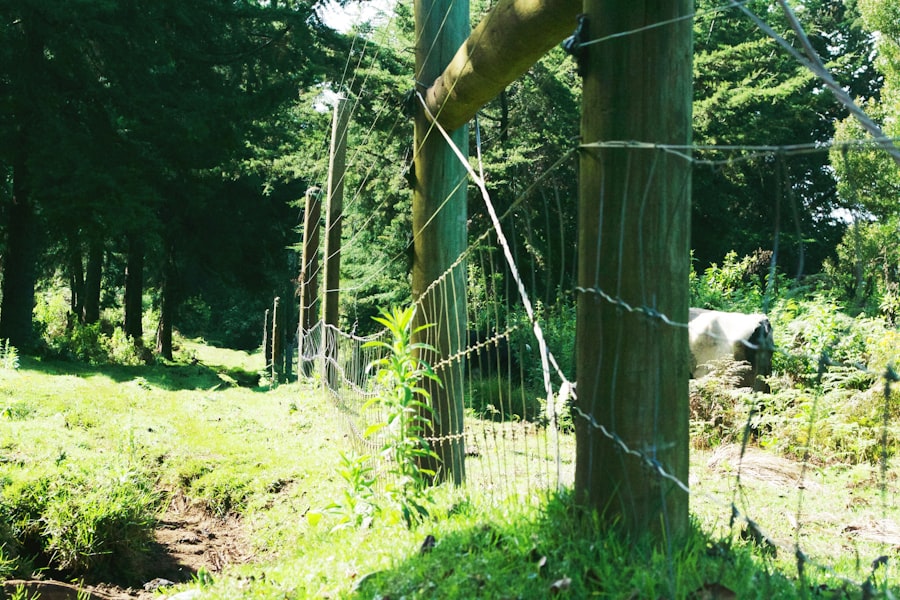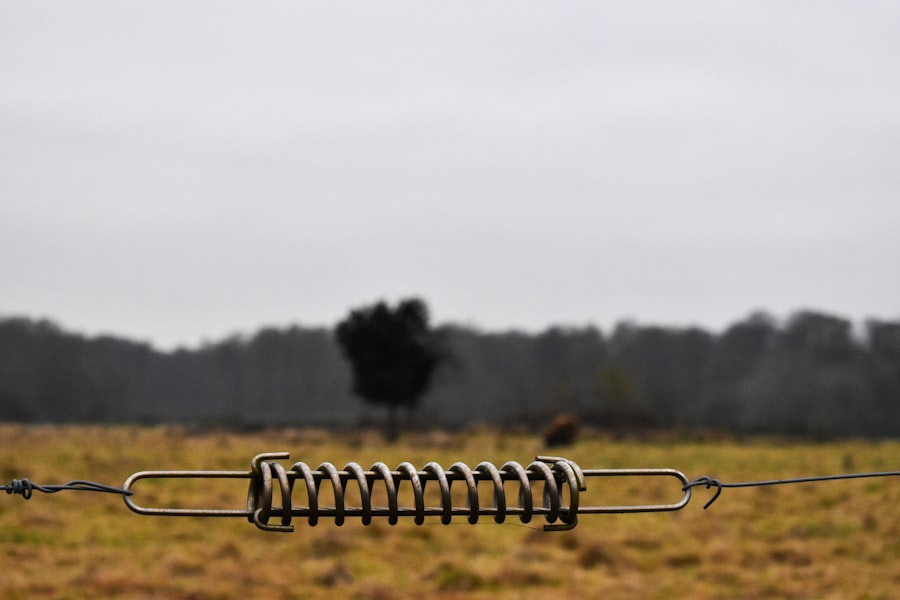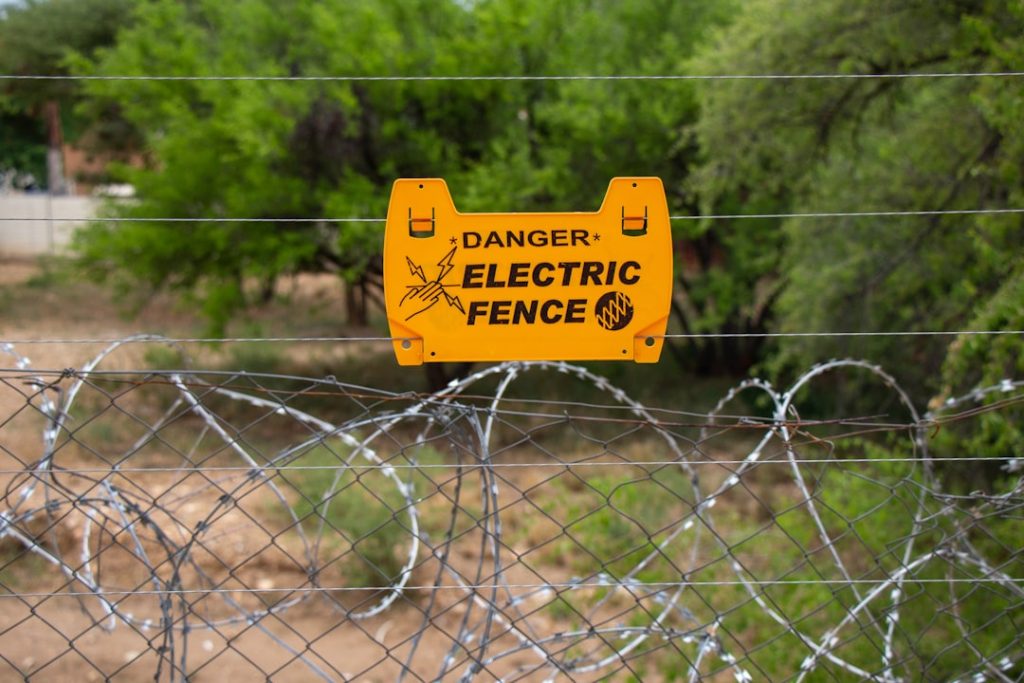Bears are highly intelligent and inquisitive mammals with an exceptional sense of smell, capable of detecting food sources from considerable distances. As opportunistic feeders, they readily exploit accessible food resources. Understanding bear behavior is crucial for effective property protection.
Bears are primarily crepuscular, being most active during dawn and dusk. They possess excellent climbing abilities, enabling them to easily ascend fences and trees to reach food. Common attractants include garbage, pet food, and bird feeders, which should be securely stored and kept inaccessible.
Bears exhibit territorial behavior, particularly during mating season, which may lead to increased aggression and assertiveness in their foraging activities. Recognizing these behavioral patterns is essential for implementing appropriate preventive measures and minimizing potential human-bear conflicts.
Table of Contents
- 1 Securing chicken coops and runs
- 2 Installing bear-proof fencing
- 3 Using deterrents and repellents
- 4 Removing attractants
- 5 Implementing noise and light deterrents
- 6 Seeking professional help
- 7 FAQs
- 7.1 What are some effective ways to keep bears away from chickens?
- 7.2 Why is it important to keep bears away from chickens?
- 7.3 What should I do if I encounter a bear near my chicken coop?
- 7.4 Are there any natural deterrents that can help keep bears away from chickens?
- 7.5 What are some signs that a bear may be targeting my chicken coop?
Key Takeaways
- Bears are intelligent and curious animals, and understanding their behavior is crucial in preventing conflicts.
- Securing chicken coops and runs with sturdy materials and electric fencing can help deter bears from targeting them.
- Installing bear-proof fencing around your property can help keep bears out and prevent them from accessing food sources.
- Using deterrents and repellents such as bear spray and noise-making devices can help discourage bears from approaching your property.
- Removing attractants such as garbage, bird feeders, and pet food can help reduce the likelihood of bears visiting your property.
- Implementing noise and light deterrents, such as motion-activated lights and radios, can help scare off bears from your property.
- Seeking professional help from wildlife experts or conservation officers can provide valuable guidance and assistance in bear management.
Securing chicken coops and runs
Reinforcing the Structure
If you have a chicken coop or run on your property, it’s essential to take extra precautions to secure it from bear intrusions. Bears are attracted to the smell of poultry and will break into a coop or run in search of a meal. To prevent this, reinforce the structure of the coop and run to make it bear-proof.
Securing Doors and Windows
One way to secure a chicken coop is by installing heavy-duty locks on all doors and windows. This will prevent bears from prying them open and gaining access to the chickens inside. Additionally, use strong wire mesh or fencing around the coop and run to prevent bears from breaking through.
Removing Attractants
Another crucial step in securing a chicken coop is to remove any potential attractants that may draw bears to the area. Keep all food sources, such as chicken feed and water, secured in bear-proof containers. Clean up any spilled feed or waste regularly to prevent the smell from attracting bears.
By taking these precautions, you can effectively secure your chicken coop and run from bear intrusions and protect your poultry from potential harm.
Installing bear-proof fencing

One of the most effective ways to prevent bears from accessing your property is by installing bear-proof fencing. Bear-proof fencing is designed to be strong and durable, making it difficult for bears to break through or climb over. There are several different types of bear-proof fencing available, including electric fencing, chain link fencing, and woven wire fencing.
Electric fencing is a popular choice for bear-proofing properties as it delivers a mild electric shock when touched, deterring bears from attempting to breach the perimeter. Chain link fencing is another effective option, as it is difficult for bears to climb and provides a strong barrier. Woven wire fencing is also a good choice, as it is sturdy and can withstand the strength of a bear.
When installing bear-proof fencing, it’s important to ensure that it is at least 6 feet tall and buried at least 12 inches into the ground to prevent bears from digging underneath. It’s also important to regularly inspect the fencing for any damage or weak spots that may need repair. By installing bear-proof fencing around your property, you can create a strong barrier that will effectively keep bears out and protect your home and belongings from potential damage.
Using deterrents and repellents
In addition to securing your property with fencing and reinforced structures, using deterrents and repellents can also help keep bears away. There are several different types of deterrents and repellents available that can be effective in deterring bears from accessing your property. One common deterrent is bear spray, which is a non-lethal form of pepper spray that can be used to deter bears from approaching.
Bear spray is designed to irritate a bear’s eyes and nose, causing them to retreat without causing any long-term harm. It’s important to keep bear spray on hand when spending time outdoors in bear country. Another effective deterrent is noise-making devices, such as air horns or whistles, which can startle bears and cause them to flee.
These devices can be used to scare off bears that may be approaching your property or getting too close for comfort. Additionally, there are several different types of bear repellents available, including sprays, powders, and granules that can be applied around the perimeter of your property. These repellents are designed to emit a strong odor that bears find unpleasant, deterring them from coming near.
By using deterrents and repellents in conjunction with other preventative measures, you can effectively keep bears away from your property and reduce the risk of potential conflicts.
Removing attractants
One of the most important steps in preventing bear intrusions is removing any potential attractants that may draw them to your property. Bears are attracted to a wide range of smells and food sources, so it’s important to take steps to eliminate these attractants as much as possible. One common attractant for bears is garbage, so it’s important to secure all trash in bear-proof containers and keep them stored in a secure location until trash pickup day.
It’s also important to clean up any spilled garbage or waste around your property to prevent the smell from attracting bears. Another common attractant for bears is pet food, so it’s important to feed pets indoors or bring their food dishes inside after they have finished eating. It’s also important to clean up any spilled pet food or water around your property.
In addition, bird feeders can also attract bears, so it’s important to hang them at least 10 feet off the ground and 4 feet away from any structures where bears could reach them. It’s also important to clean up any spilled birdseed regularly. By removing these attractants from your property, you can significantly reduce the likelihood of bears being drawn to your home and prevent potential conflicts.
Implementing noise and light deterrents

Noise Deterrents
Bears are sensitive to loud noises, making noise deterrents a great way to scare them off. One effective method is to use motion-activated alarms or sirens that startle bears when they approach your property. These alarms can be set up around the perimeter of your property and will go off when they detect movement, scaring off any potential intruders. Another effective noise deterrent is playing loud music or making loud noises when you spot a bear approaching your property. This can startle the bear and cause them to retreat without causing any harm.
Light Deterrents
In addition to noise deterrents, using bright lights around your property can also help deter bears from approaching. Motion-activated lights can be set up around the perimeter of your property and will turn on when they detect movement, startling any potential intruders.
Combining Deterrents for Maximum Effectiveness
By implementing noise and light deterrents in conjunction with other preventative measures, you can effectively keep bears away from your property and reduce the risk of potential conflicts.
Seeking professional help
If you have persistent issues with bears accessing your property despite taking preventative measures, it may be necessary to seek professional help. Wildlife management professionals have the knowledge and experience to effectively deal with bear conflicts and can provide valuable advice on how to prevent future intrusions. Professional wildlife managers can conduct a thorough assessment of your property and identify any potential weaknesses that may be attracting bears.
They can also provide recommendations on how to reinforce structures, secure attractants, and implement effective deterrents. In some cases, wildlife managers may also recommend non-lethal methods of bear removal, such as using hazing techniques or relocation efforts. These methods should only be carried out by trained professionals who understand the behavior of bears and how to safely handle them.
By seeking professional help, you can effectively address any ongoing issues with bears accessing your property and implement long-term solutions to prevent future conflicts. In conclusion, understanding bear behavior is crucial in effectively preventing them from accessing your property. By securing chicken coops and runs, installing bear-proof fencing, using deterrents and repellents, removing attractants, implementing noise and light deterrents, and seeking professional help when necessary, you can effectively keep bears away from your property and reduce the risk of potential conflicts.
Taking these preventative measures will not only protect your home and belongings but also ensure the safety of both humans and bears in their natural habitat.
If you’re looking for ways to protect your chickens from predators, including bears, you may also be interested in learning about the importance of having a secure chicken coop. This article on chicken coop door size provides valuable information on how to properly size and secure your coop to keep your chickens safe from potential threats.
FAQs
What are some effective ways to keep bears away from chickens?
Some effective ways to keep bears away from chickens include installing electric fencing, using motion-activated lights or sound deterrents, securing chicken coops with sturdy locks, and removing any potential food sources that may attract bears.
Why is it important to keep bears away from chickens?
It is important to keep bears away from chickens to protect the safety of both the chickens and the humans who care for them. Bears can pose a threat to the well-being of chickens and can also cause property damage.
What should I do if I encounter a bear near my chicken coop?
If you encounter a bear near your chicken coop, it is important to remain calm and avoid approaching the bear. Make loud noises to try to scare the bear away, and if necessary, contact local wildlife authorities for assistance.
Are there any natural deterrents that can help keep bears away from chickens?
Some natural deterrents that may help keep bears away from chickens include planting strong-smelling herbs or flowers around the coop, such as lavender or mint, and using ammonia-soaked rags or cotton balls placed strategically around the area.
What are some signs that a bear may be targeting my chicken coop?
Some signs that a bear may be targeting your chicken coop include tracks or scat near the coop, damage to the coop or fencing, and missing or injured chickens. It is important to be vigilant and take proactive measures to deter bears if you notice these signs.
Meet Walter, the feathered-friend fanatic of Florida! Nestled in the sunshine state, Walter struts through life with his feathered companions, clucking his way to happiness. With a coop that’s fancier than a five-star hotel, he’s the Don Juan of the chicken world. When he’s not teaching his hens to do the cha-cha, you’ll find him in a heated debate with his prized rooster, Sir Clucks-a-Lot. Walter’s poultry passion is no yolk; he’s the sunny-side-up guy you never knew you needed in your flock of friends!







